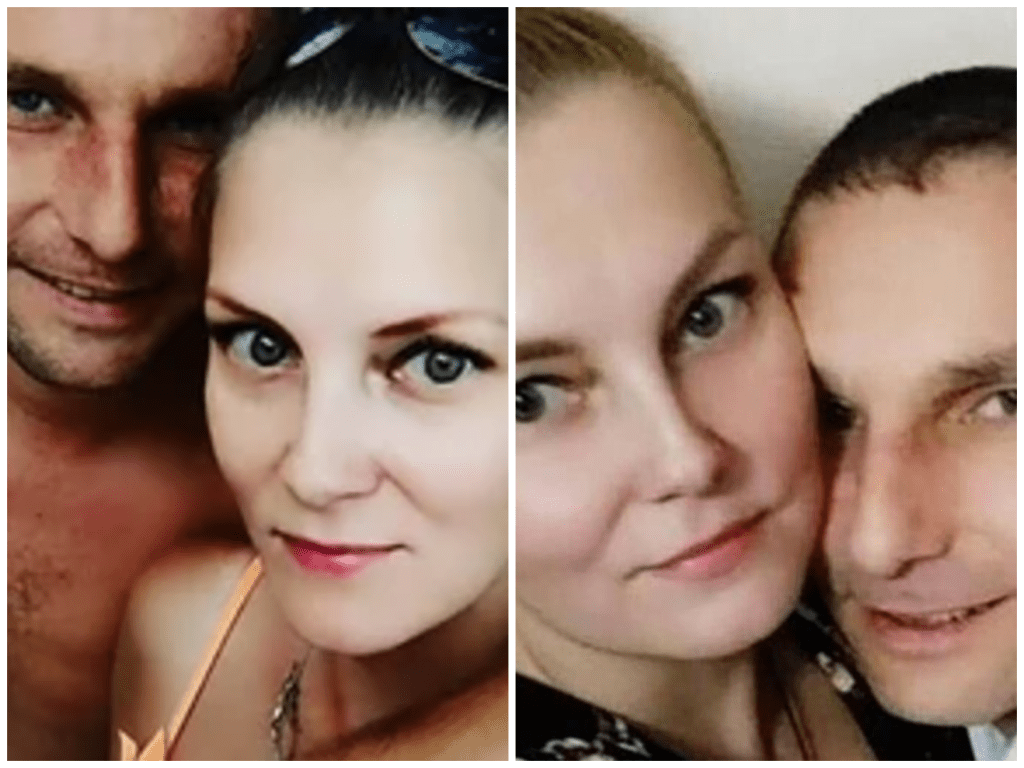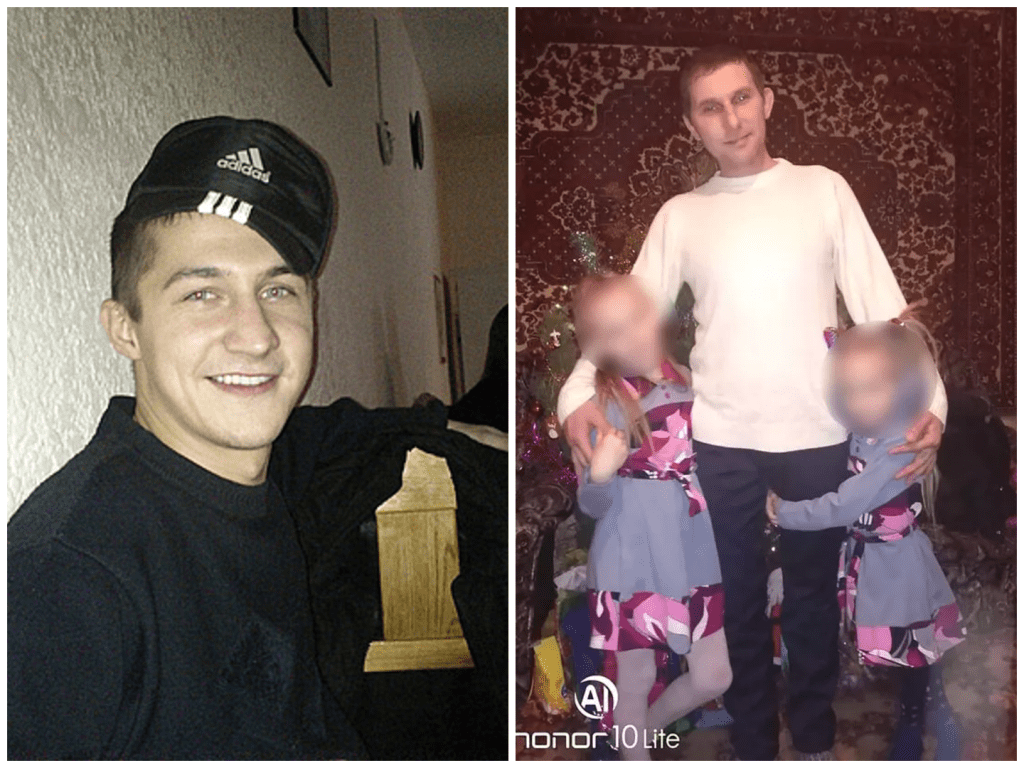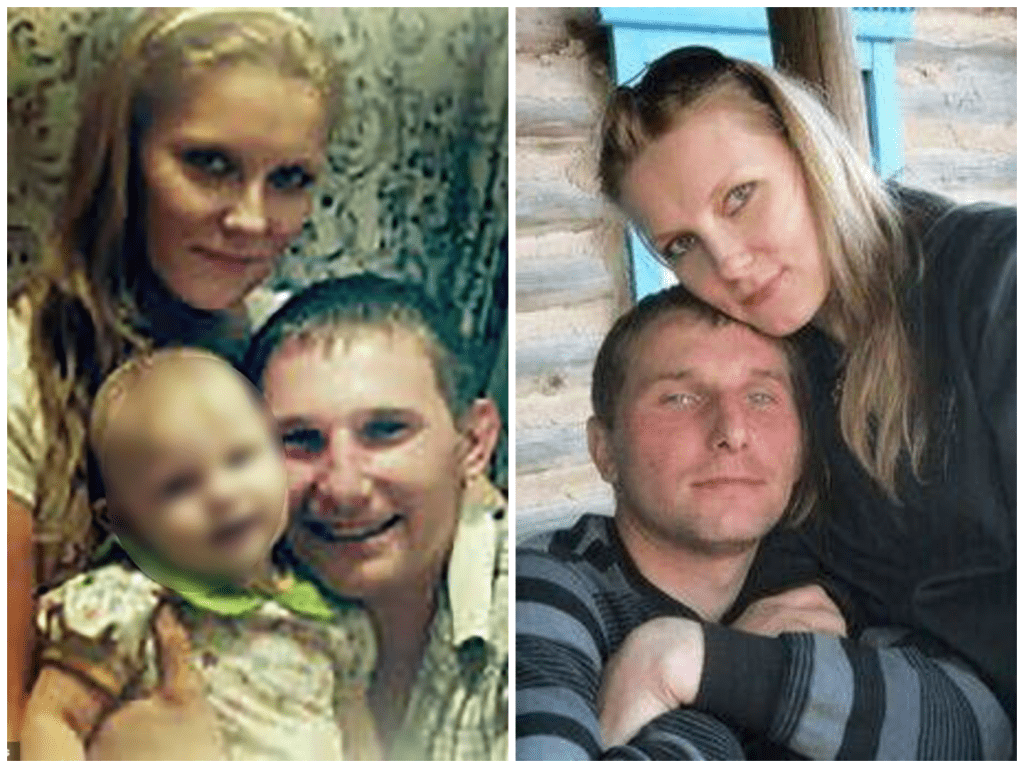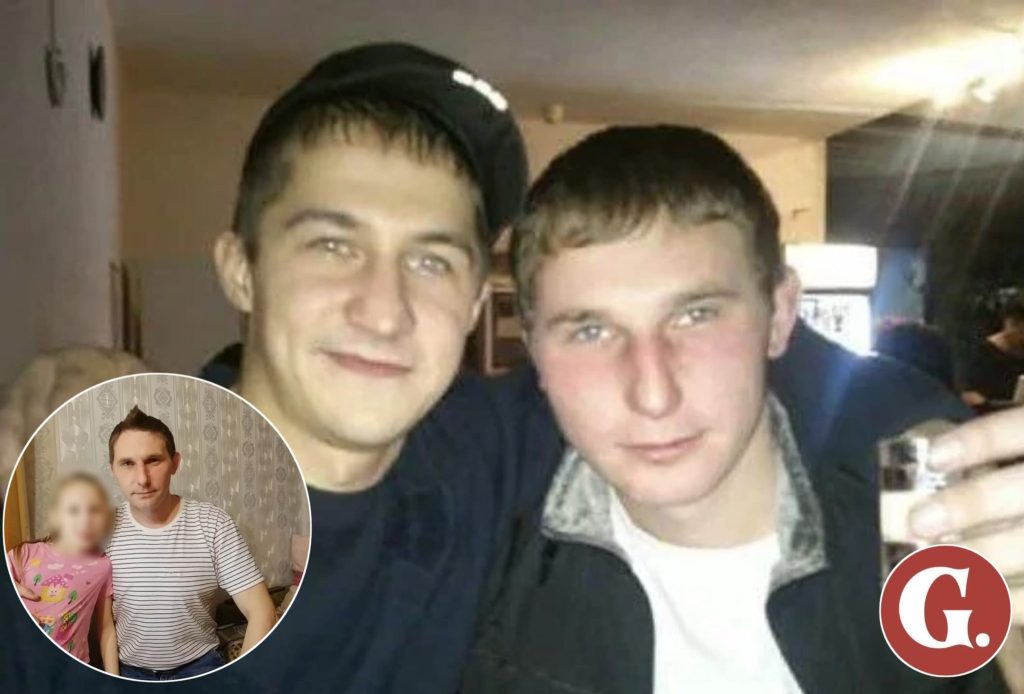A Father’s Desperate Act: Vyacheslav Matrosov’s Confrontation with His Daughter’s Abuser
It was a quiet evening in 2021, in a small village in Russia’s Samara region, when Vyacheslav Matrosov’s world fell apart. The 35-year-old father was sitting with his best friend, Oleg Sviridov, a man he’d known for years, the kind of friend you trust with your home, your secrets, your kids. Oleg, 32, was more than just a friend—he was the godfather to Vyacheslav’s six-year-old daughter, a role that carried a sacred promise. They were sharing drinks, the kind of night that usually ended in laughter or quiet camaraderie. But then Vyacheslav picked up Oleg’s phone. Maybe it was a casual glance, maybe a gut feeling. What he found on that screen changed everything.

A video played, and there was his little girl, her voice small and trembling, pleading, “Oleg, that’s enough. I can’t take it anymore. I want to go home.” The words hit Vyacheslav like a punch to the chest. His daughter, just six years old, was being abused, and the man responsible wasn’t some faceless stranger—it was Oleg Sviridov, the friend he’d trusted most. The betrayal was a knife, twisting deeper with every second of that video. As a parent, I can’t even begin to imagine the rage, the sickness, the heartbreak that must have flooded Vyacheslav in that moment. Your child is your world, and to see her hurt, to hear her beg for it to stop—it’s the kind of pain that makes you feel like you’re drowning.
Vyacheslav didn’t just sit with that pain. He acted. He confronted Oleg, and what happened next would spark a story that gripped not just the village of Pribrezhnoye, but people far beyond Samara’s borders. In a moment of raw, unshakable fury, Vyacheslav led Oleg to a wooded area near Vintai village. There, he forced his former friend to dig a shallow grave. The details of that night are hazy, clouded by emotion and chaos, but what we know is this: Oleg died in those woods. His body was found a week later, in the grave he’d dug, with a fatal stab wound. Investigators determined that Oleg had inflicted the wound himself, a finding that spared Vyacheslav a murder charge but didn’t shield him from the law’s judgment.
I keep picturing Vyacheslav standing in that forest, the weight of what he’d seen on that phone pressing down on him. Was he shaking with anger? Was he crying for his daughter? Was he thinking about every moment he’d trusted Oleg, every time he’d left his little girl in his care? As a mom, I think about my own kids, their giggles, their trust, the way they look at you like you can fix anything. If someone hurt them like that, I don’t know what I’d do. I’d want to scream, to make it stop, to make the person who caused that pain feel every ounce of it. Vyacheslav’s reaction wasn’t calculated. It was human. It was a father pushed past his breaking point.

The story could have ended there, in the darkness of those woods, but it didn’t. When news of Oleg’s death spread, and Vyacheslav was arrested, something remarkable happened. The people of Pribrezhnoye didn’t turn away from him. They stood by him. They saw a father who’d faced the unthinkable and acted to protect not just his daughter, but their community. Neighbors raised money for his legal defense, pooling what little they had to help a man they believed had done the right thing, even if it was outside the law. A petition calling for his acquittal gathered 2,500 signatures, with locals writing that Vyacheslav had “saved our children” by stopping a predator. Even Ksenia Sobchak, a well-known Russian TV journalist and former presidential candidate, spoke out, saying, “All parents are standing up for the pedophile’s killer.”
The evidence against Oleg was chilling. His phone wasn’t just a window into one crime—it held videos suggesting he’d abused at least two other children in the village, girls aged six and eleven. For five years, this man had hidden his actions behind the mask of a trusted friend, a godfather, a babysitter. No one saw it coming—not Vyacheslav, not Oleg’s ex-partner, Oksana Kazakova, whose own daughter was allegedly among the victims, not even Oleg’s mother, who later said he must have been drunk. But there was no excusing what he’d done. The truth was out, and it was devastating.
In April 2022, the Krasnoglinsky Court in Samara delivered its verdict. Vyacheslav wasn’t charged with murder—the forensic evidence was clear that he hadn’t stabbed Oleg. Instead, the court convicted him of “inciting a person to suicide by threats or abuse,” a charge that carried a maximum of six years but often led to lighter sentences. Vyacheslav was given 18 months in a strict-regime penal colony, a place where time drags and the walls feel like they’re closing in. It wasn’t a murder sentence, which could have meant 15 years away from his family, but 18 months was still a heavy burden for a father who’d acted out of love and desperation.
The community’s support never faltered. To them, Vyacheslav wasn’t a criminal—he was a hero, a man who’d done what any parent might want to do in his shoes. “Every father would have done this,” the petition declared, capturing a feeling that resonated far beyond the village. Oksana Kazakova, whose daughter may have been one of Oleg’s victims, spoke of the community’s hope that Vyacheslav would walk free. “We were all hoping Slava would get a suspended sentence,” she said. “Eighteen months isn’t long, but we really hope he’ll get a presidential pardon.” The petition, the donations, the public outcry—it all showed how deeply people understood Vyacheslav’s pain, how much they saw themselves in him.
In the end, Vyacheslav served only part of his sentence. Reports vary, but after six to twelve months, he was released early, thanks to the public pressure and the petition that had rallied thousands to his side. When he returned to his wife, Natalya, and their daughters, he shared a simple message on social media: “Home. Love very much.” I can picture him walking through the door, his girls running to him, the relief of being back with the family he’d fought so hard to protect. That moment must have felt like sunlight after a long, dark storm.

But stories like this don’t wrap up cleanly. Vyacheslav’s actions, while driven by love, stepped outside the law. He forced Oleg to dig that grave, and though the court ruled Oleg’s death was self-inflicted, the line between justice and vengeance is thin. I think about the scars this left—not just on Vyacheslav, but on his daughter, on the other families whose children may have been hurt. Healing from something like this takes time, maybe a lifetime. The pain of betrayal, of hearing your child’s voice begging for help, doesn’t just fade.
I keep coming back to that little girl’s voice in the video, the way she pleaded to go home. It’s the kind of thing that stays with you, that makes you hold your own kids a little closer. Vyacheslav’s story is messy, human, and heartbreaking. It’s about a father who saw his worst nightmare on a phone screen and did what he felt he had to do. In Pribrezhnoye, where a shallow grave marks a painful chapter, the community’s support for Vyacheslav shows the power of a parent’s love—a love that fights, that protects, that sometimes pays a heavy price.


